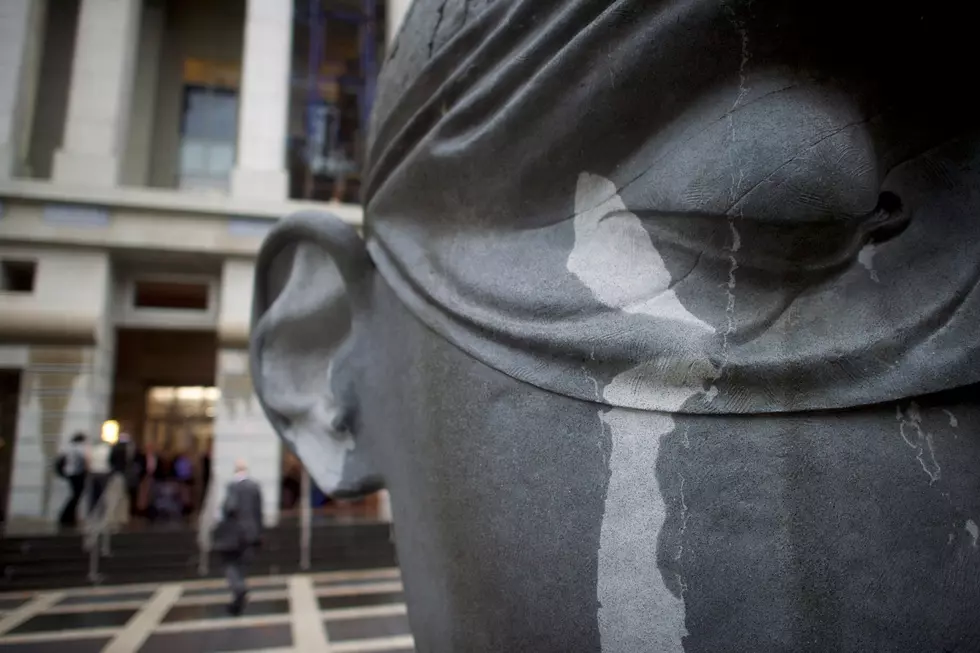![ACLU Blasts Newark’s Stop-and-Frisk Policy: Does It Unfairly Target Blacks? [POLL]](http://townsquare.media/site/385/files/2014/02/459768693-300x200.jpg?w=980&q=75)
ACLU Blasts Newark’s Stop-and-Frisk Policy: Does It Unfairly Target Blacks? [POLL]
Numbers recently released by the American Civil Liberties Union state that the number of citizens targeted by the Newark Police Department’s policy of Stop and Frisk are disproportionately African American.
Those numbers don’t jive with the proportion of African American citizens that make up the population of Newark.
Overall, the African American population is at around 52% while those stopped under the controversial policy are 75% black.
Is the policy unfairly targeting blacks; or is it good policing in high crime areas that need such an aggressive approach?
Despite comprising just more than half of Newark’s population, African Americans make up 75 percent of the stops under the city Police Department’s stop-and frisk-program, a report released today by the American Civil Liberties Union of New Jersey has found.
The report, which examines six months of police department data, is the first look at the city’s stop-and-frisk program — a controversial policing tactic used to interrogate and search people suspected of criminal activity. The data is published regularly on the department’s website under a policy instituted by recently retired Police Director Samuel DeMaio.
Udi Ofer, executive director of the ACLU of New Jersey and co-author of the report, said in a statement, "several disturbing patterns have emerged that raise constitutional red flags about the Newark Police Department’s stop-and-frisk practices," "Specifically, our report raises concerns about the high volume of stops, racial disparities in who is getting stopped and the fact that the vast majority of stops appear to be of innocent people."
The report, which studied data from July to December 2013, found that 25 percent of those stopped in Newark were arrested or issued a summons, meaning 75 percent were deemed not to have done anything wrong.
Most of those stopped — 75 percent — were African American, who make up 52 percent of the city’s population, the report said. Of the rest, 23 percent were listed as white or Hispanic and 2 percent were listed as "other." One of the recommendations contained in the report was that police provide more details surrounding the ethnicity of those stopped.
Ofer and co-author Ari Rosmarin, the state ACLU’s public policy director, urged police to review the policy, specifically where it concerns racial disparities and innocence rates.
They also asked for more details about officer interactions with residents by separating out summonses from arrests, providing details of arrests and summonses, and giving reasons on why the stop was made, among other recommendations.
To answer the above question – I’d ordinarily side with the argument that it’s good policing – especially given Newark’s high crime rate.
Simple enough – until someone from Newark whose name I believe was “Ishmael” called Jim’s show earlier in the day.
He claimed to be an African American from Newark, with a wife and 4 year old son, as I recall. I believe he claimed to have been stopped at least 4 times; and while he displayed no resentment toward the police – he noted that police who do carry out the policy, especially younger members of the force, tend to prejudge those they are searching. He did note having been verbally abused by police at times and intimated that there’s very little one can do once a search is carried out.
The point of all this is whether or not this aggressive policy is being carried out fairly.
While I see where the ACLU is coming from regarding the disproportion of African American citizens stopped – if crimes are happening mainly in those sections populated mainly by African Americans – doesn’t it make sense to carry out the program where the crimes occur?
More From New Jersey 101.5 FM









